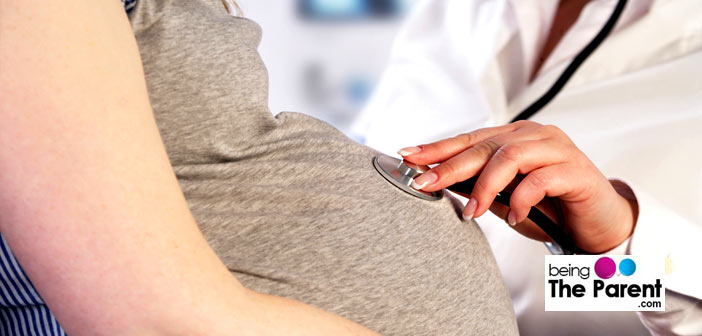
Pregnancy is an amazing lifetime experience and you will have innumerable things to cherish for. Most pregnancies are normal and free of complications, but sometimes this journey of pregnancy can be associated with some medical issues that could make it complicated. Your health care will keep a watch on these complications all through your pregnancies by conducting routine tests. Here’s a list of some 8 most common and frequent pregnancy complications that an expectant woman might experience.
Top 8 Common Pregnancy Complications
-
- Miscarriage:The loss or pregnancy within first 20 weeks of gestation is termed as miscarriage. Around 80% of miscarriages usually occur in the first 12 weeks of pregnancy. The main cause of these abortions is chromosomal abnormalities associated with the fertilized egg that interferes with the proper development of the embryo.
Bleeding from the vagina or spotting is the most common sign of miscarriage. So, if you notice any of these, immediately consult your doctor. An ultrasound or a blood test may be advised by the doctor so as to ascertain what is causing the bleeding
- Miscarriage:The loss or pregnancy within first 20 weeks of gestation is termed as miscarriage. Around 80% of miscarriages usually occur in the first 12 weeks of pregnancy. The main cause of these abortions is chromosomal abnormalities associated with the fertilized egg that interferes with the proper development of the embryo.
Read about the most common causes of miscarriages here.
- Premature labor and birth:Another serious complication of pregnancy is premature labor and preterm birth. If uterine contractions start and the cervix begin to efface (thinning and opening of cervix) before completing 37 weeks of pregnancy, the condition is called premature or preterm labor. The babies born at this time are called premature babies and they are vulnerable to health hazards and infections. Mature babies have better surviving rate. Vital organs such as brain and lung are fully developed after the growing fetus has completed 37 weeks of pregnancy. So if the baby is born prior to this crucial period, survival becomes difficult. There are a few conditions that enhance the jeopardy of preterm labor such as presence of shortened cervix, earlier preterm births, infections, etc. Progesterone hormone is believed to support pregnancy therefore obstetricians often advice progesterone supplementation to high risk women to cut down the risk of preterm birth. Read more about premature babies here
- Gestational Diabetes:If diabetes is detected in pregnant women who did not have it in non-pregnant state, the condition is termed as gestational diabetes.
Normally the body converts your carbohydrate in sugar- the glucose. This glucose circulates in blood stream and provides energy to the body for various life functions. The pancreas synthesizes hormone insulin to get glucose from the blood stream.

In pregnancy sometimes the pancreas do not make sufficient amount of insulin. So the glucose circulating in blood starts building up and results in diabetes. Over the course of time serious health ailments can be seen such as loss of vision, kidney problems and heart problems. More on gestational diabetes here - Preeclampsia:Preeclampsia is characterized by presence of high blood pressure and proteins in urine. This condition is commonly seen in the third trimester of pregnancy. Low platelet count, deranged liver functions, kidney problems, swelling, breath shortness due to presence of fluid in lungs, or visual disturbances are common signs of preeclampsia. It is a fatal medical condition and can result in premature birth of the baby. The exact cause of preeclampsia is unknown however following are the risk factors:
- First pregnancies
- Existing high blood pressure, diabetes, systemic lupus erythematosus and kidney problems
- History of preeclampsia in earlier pregnancies
- Being pregnant at 35 years and above
- Multiple pregnancies
- Obesity
If the condition is left untreated it may result in eclampsia a condition accompanied with seizures
- High Blood Pressure:Reduced blood flow to the fetus because of narrowing of arteries during pregnancy can slow the fetus growth and make the mother at a risk of developing pre eclampsia or a preterm delivery. Since blood flow gets reduced to the placenta, the supply of essential nutrients to the fetus gets affected and results in complications. Women who are diagnosed with gestational hypertension are advised to take medications throughout the pregnancy to control the blood pressure. The health care providers also monitor any changes in the blood pressure very closely.More on gestational hypertension here
- Low amniotic fluid (oligohydramnios):It is a condition characterized by the presence of insufficient quantities of amniotic fluid in the sac. Polyhydramnios is the condition opposite to it where there is excess of amniotic fluid. The amniotic sac contains amniotic fluid that provides nourishment and support to the growing fetus. If the fluid is less in amount, it is called oligohydramnios. The true cause is unknown but following conditions are found to be related to Oligohydramnios.
- Fetal chromosomal anomalies
- Intra uterine infections
- Drugs; PG inhibitors, ACE inhibitors
- IUGR or intrauterine growth restriction
- Placental insufficiency
- Postmaturity
- Renal agenesis
- Amnion nodosum
The condition is diagnosed by clinical examination followed by ultrasonography. The uterine size is usually smaller than the period of gestation. Fetal movements are reduced. Oligohydramnios is often associated with chromosomal abnormality. The complications such as musculoskeletal abnormalities, cord compressions etc are present. Potter syndrome is a medical condition caused by oligohydramnios. In this situation the fetus develops pulmonary hypoplasia, characteristic facies and limb deformities

- Ectopic pregnancy:Tubal pregnancy, eccyesis or ectopic pregnancy is another complication of pregnancy. Here the developing embryo is implanted at some other place outside uterine cavity usually fallopian tubes
The presenting symptoms are vaginal and abdominal excruciating pain followed by severe bleeding. The heart rate increases and patient faints or even goes in shock. Read more abour ectopic pregnancy here.
The probable risk factors of eccyesis are tobacco smoking, pelvic inflammatory disease usage of assisted reproductive methods - Placenta previa:This is an obstetric complication where the placenta is wholly or partially implanted on the lower uterine segment. This is one of main causes of antepartum hemorrhage.
Usually there are following four types of placenta praevia- Type I: In this type placenta is in the lower segment and its edge does not reach the cervical internal os.
- Type II: The placental lower edge reaches up to the internal os but it does not cover it completely.
- Type III: The placenta partially covers the internal os of the cervix.
- Type IV: In this type the placenta completely covers the internal part of the cervix.

1 Comment
Well summarized article about pregnancy complications. Gestational diabetes contributes to increased weight gain. Obesity may have an impact on the baby’s stem cells so it is necessary to take precautions and avoid weight gain. Also, if you are planning for stem cell banking service, you should let your gynecologist and obstetrician know about it well in advance so that the paramedic can come and collect the stem cells after delivery without any trouble. To know more about stem cell banking.